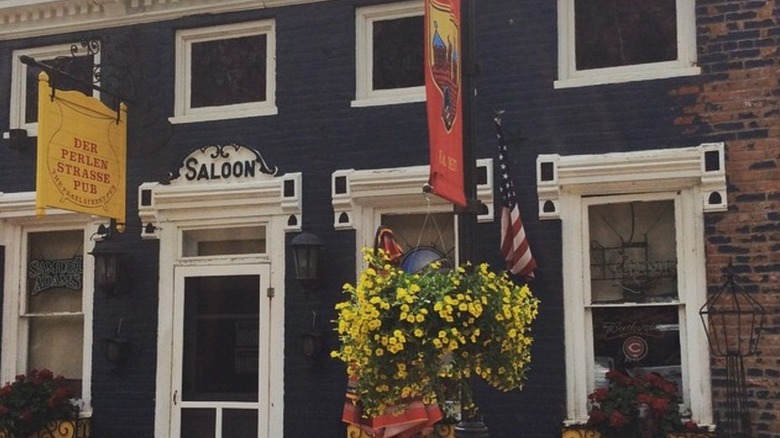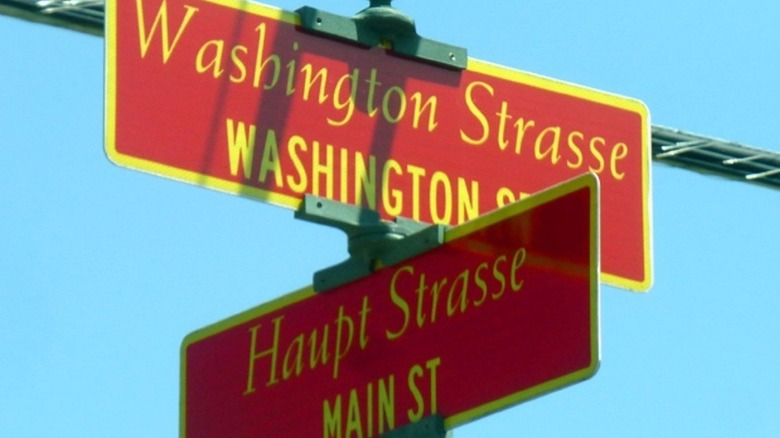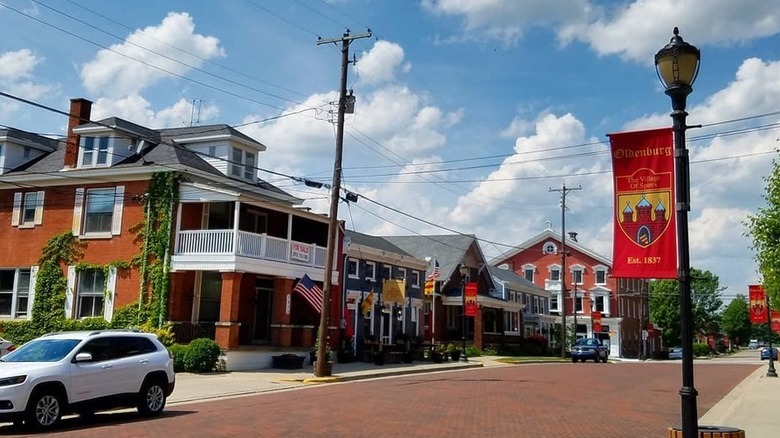Get A Taste Of German Culture And Food In This Quaint Indiana Town
A tiny hamlet in Franklin County, Oldenburg is one of the oldest established communities in Indiana. It also happens to be a near-perfect replica of traditional German culture and cuisine. Oldenburg was founded in 1837 by German settlers and the migrants named their newly acquired village, Neu Oldenburg, in remembrance of their German hometown. The settlers even established a constitution with articles relative to their German heritage like "beer and cider allowed in the afternoon," and "all drunkards and those that commit nuisances on the street shall be punished." With a population of fewer than 700 residents, its small-town charm and German character make it a unique hidden gem in the Hoosier State. The unique architecture is so reminiscent of Germany that it even led to Oldenburg's induction into the National Register of Historic Places. Its traditional German-style buildings are what gave this historic Midwest town its nickname, the "Village of Spires" because of its ancient churches with their steeples rising into the sky.
Visitors can find Oldenburg wedged between Indianapolis and Cincinnati in southeastern Indiana. An estimated 300 acres of flat farmland used to graze dairy cattle surrounds Oldenburg and adds to its old-world character. One thing is for sure — residents of Indiana and Ohio don't have to travel far to enjoy a taste of German culture in the heart of America's Midwest.
A German hub in the Hoosier State
It's hard to look around the streets of Oldenburg and not feel like you're in Europe — its German heritage is evident in nearly every corner of town. Road signs translate street to "strasse," while chapels with stained glass windows and a 161-foot tall belfry tower go hand in hand with the red brick road that cuts through the heart of this historic German destination.
Main Street (Haupt Strasse) contains the real jewels of this town in the form of timber cottages refurbished into quaint boutiques, like the Nativity Shop and Carriage House Antiques. This vintage basket of old-school finds doubles as a creamery that sings to the soul on a hot summer day. Speaking of food, Oldenburg locals know a thing or two about cooking up traditional German cuisine. Pearl Street Pub and the Brau Haus (Brew House) are two of the most famous dining taverns in town, with wafts of freshly fried schnitzel filling the main lounge, and other traditional dishes like sauerkraut balls with Düsseldorf mustard and dunkel beer on the menu.
German food isn't the only fare you'll find in Oldenburg, though. Wagner's Village Inn is famous for having some of the best fried chicken in Indiana. Timing your visit with Freudenfest (the festival of fun) is advised, as it might just be the grandest exhibition of German culture you'll find here all year.
Visit the town during Freudenfest
Fondly known as "The Biggest Little German Festival," Freudenfest is an eagerly anticipated non-profit tradition the entire community of Oldenburg partakes in once a year in July. First integrated into this town's culture in 1978, it honors the time-old traditions and heritage of German culture. Music, dancing, festivities, and a collection of cultural food and drinks bring this German festival to life in the streets of Oldenburg. Over the years, the tradition has elaborated on its first annual festival and expanded to include a variety of time-honored activities. A bier garten, pie contest, dachshund race, and wine tasting are just a few events this town has planned in the Freudenfest calendar. Of course, singing the Schnitzelbank Salute and a 5k run through Michaela Farm are non-negotiables in this small-town fest. The mingling aromas of sweet and savory scents coalesce down Main Street, making it nearly impossible to decipher between the homemade sausages, Reuben sandwiches, and German country-style ribs.
Resting at the heart of Freudenfest is the deep-seated desire to link the past and present of German culture in Oldenburg. According to the New York Times, many of the town's locals expressed that they can still recall the stories of their grandparents migrating from Germany to the United States in the 1800s, with no language to communicate with the natives in their new homeland. Freudenfest exists not only as a time of celebration, but also as a tribute to their ancestors.


